Actinic Keratosis
A light complexion, blonde or red hair, blue or green eyes, or higher amount of sun exposure throughout your lifetime all put you at greater risk for Actinic Keratosis. People who spend a significant amount of time outdoors may also be at higher risk for Actinic Keratosis. Actinic Keratosis is most commonly seen in people age forty and older.
Actinic Keratosis is considered a precancerous skin condition and should be treated by a dermatologist. Regularly visiting one of our Rencic Dermatology skin experts can help prevent the progression of actinic keratosis to more severe skin conditions.
Examples Actinic-Keratosis
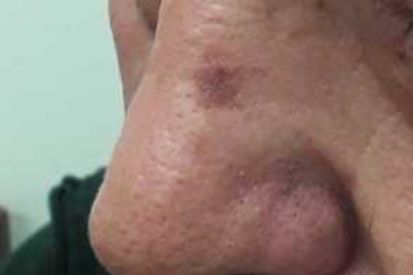
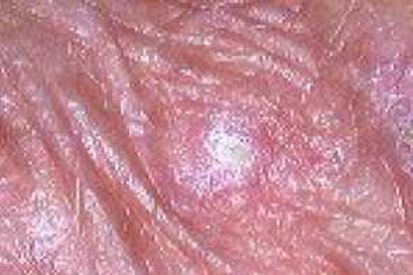
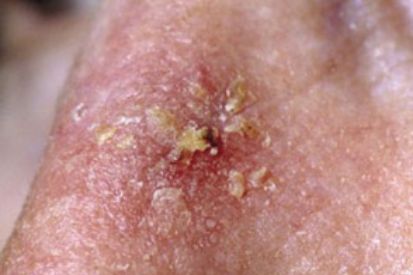
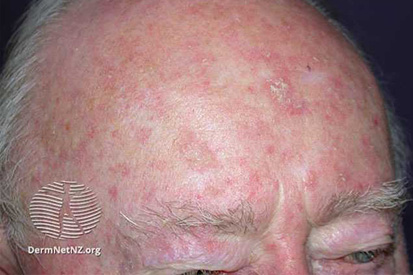
What are the Symptoms of Actinic Keratosis?
- Actinic Keratosis can reach a quarter of an inch in size and may even disappear for a time.
- May appear red, light or dark tan, pink or skin-colored.
- These patches may be sensitive or tender and may become inflamed or even bleed.
- Although the patches are typically dry they may also present as lesions that do not heal or as thick, horny growths.
Causes of Actinic Keratosis
- Actinic keratosis (AK) is primarily caused by prolonged exposure to ultraviolet (UV) radiation from the sun or artificial sources like tanning beds.
- The cumulative effect of sun damage leads to the development of these precancerous lesions.
- The risk of actinic keratosis increases with age, reflecting the cumulative impact of sun exposure over the years.
- Individuals with weakened immune systems may be at a higher risk of developing actinic keratosis.
How to Prevent Actinic Keratosis
- Sunscreen: Regularly apply a broad-spectrum sunscreen with a high SPF to exposed skin, even on cloudy days. Reapply every two hours and more frequently if sweating or swimming.
- Protective Clothing: Wear protective clothing, such as wide-brimmed hats, long sleeves, and sunglasses, to shield the skin from direct sunlight. Clothing with a tight weave offers additional protection.
- Seek Shade: Limit direct sun exposure during peak hours, typically between 10 a.m. and 4 p.m. When outdoors, seek shade under trees, umbrellas, or other structures.
- Avoid Tanning Beds: Refrain from using tanning beds, as they emit harmful UV radiation that contributes to skin damage.
- Regular Skin Examinations: Perform at-home self-examinations of the skin regularly to detect any changes or new lesions as well as schedule annual total body skin exams with your trusted dermatology provider. Notify your provider of any suspicious growths or changes you find.
- Limit Alcohol and Tobacco: Excessive alcohol consumption and smoking can contribute to skin damage, so moderation or cessation of these habits is beneficial.
- Stay Hydrated: Proper hydration helps maintain skin health. Drink an adequate amount of water to support overall skin function.
Actinic Keratosis FAQs
Actinic Keratosis lesions are typically not painful, and many people may not experience any discomfort. However, some individuals may notice tenderness, itching, or a burning sensation in the affected areas. If you have concerns about any changes in your skin, including discomfort or new lesions, it's important to consult with a dermatologist for an evaluation.
Actinic Keratosis does not typically resolve on its own. Without treatment, these precancerous lesions have the potential to progress to squamous cell carcinoma, a type of skin cancer. Therefore, it is crucial to seek medical attention if you suspect you have Actinic Keratosis. Your dermatologist can assess the lesions, recommend appropriate treatments, and monitor your skin for any signs of progression.
Your dermatologist can diagnose Actinic Keratosis through a visual examination of the skin. In some cases, a biopsy may be performed to confirm the diagnosis or rule out skin cancer. The biopsy involves removing a small sample of the affected skin for laboratory analysis.
You should use sunscreen every day, even on cloudy days and during the winter, UV rays can still penetrate the clouds and cause skin damage.
Sunscreen needs time to be absorbed into the skin; we recommend applying a broad-spectrum SPF 30 sunscreen at least 15-30 minutes before going outdoors and reapplying every two hours.
From Our QualDerm Family of Brands: Sunscreen Recommendations
How to Treat Actinic Keratosis
Treatment options may include:
- Cryotherapy: The use of liquid nitrogen to freeze the lesions superficially
- Topical Creams: Designed to eliminate Actinic Keratosis in the affected areas.
Featured Products for Sun Protection
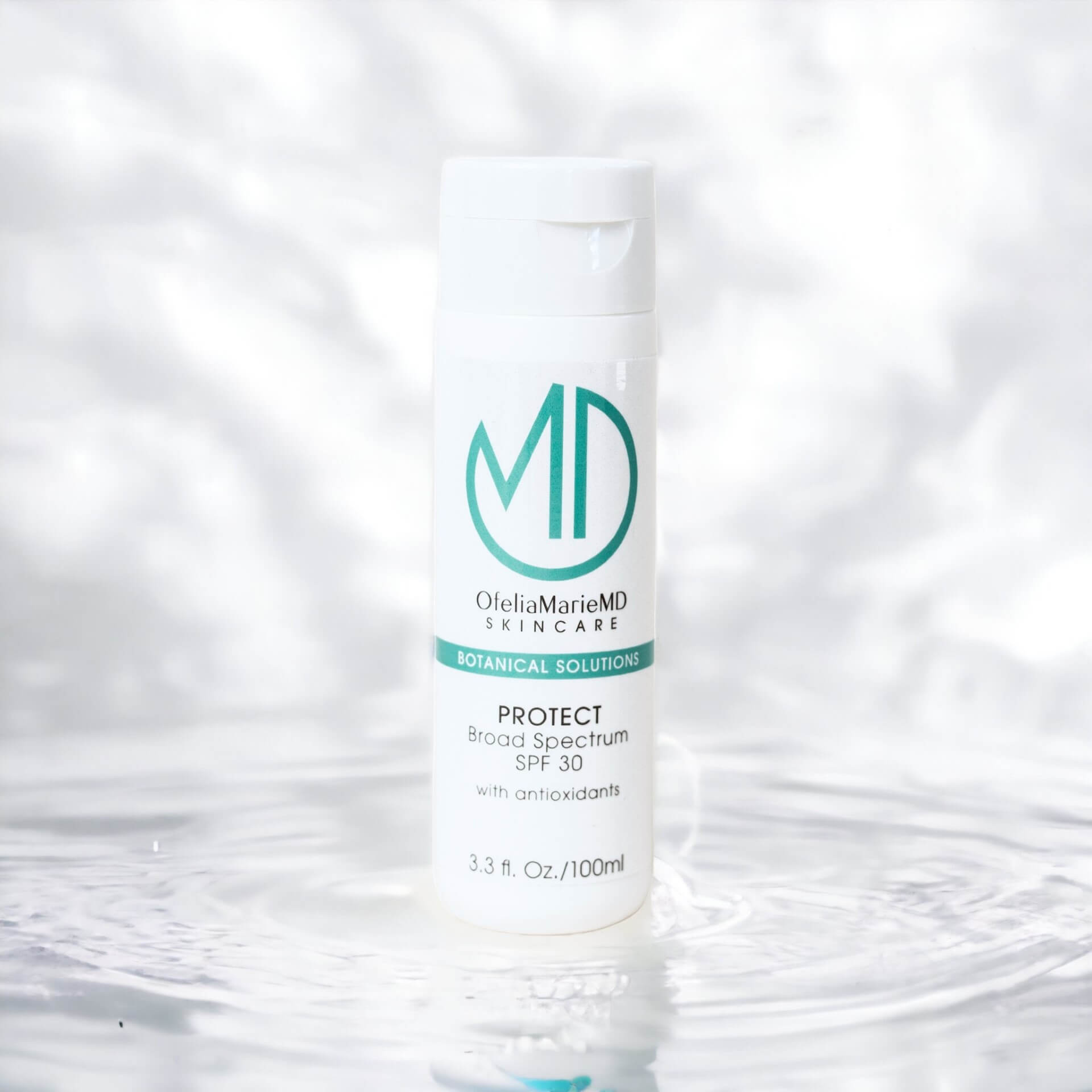
OfeliaMarie MD Skincare PROTECT
PROTECT Broad Spectrum SPF 30 with antioxidants. Designed to lightly hydrate your delicate skin while providing protection from the sun. Developed for the face and the body. It is recommended to use this light crème be used at the end of every treatment and the beginning of every day.
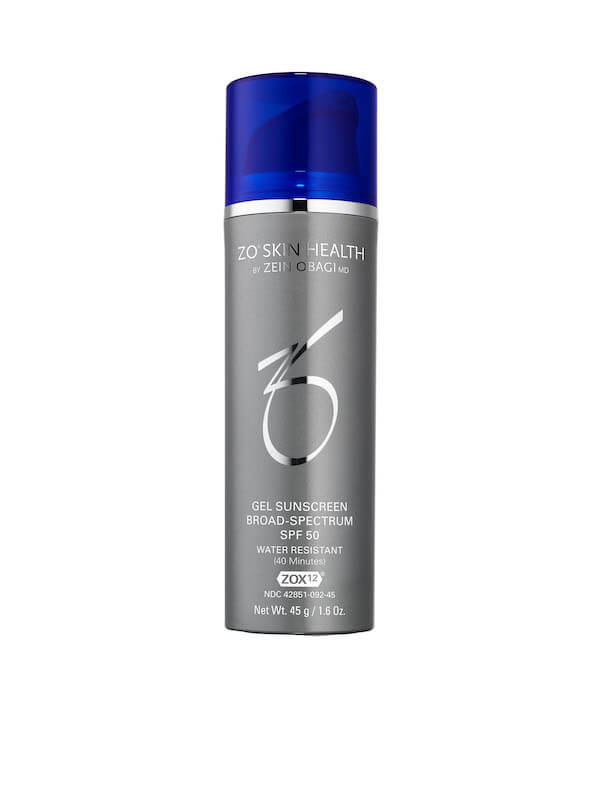
ZO® Gel Sunscreen Broad-Spectrum SPF 50
A clear and unscented gel sunscreen with a complexion-smoothing finish for all skin tones. Exclusive antioxidant + plant stem cell complexes minimize the aging effects of environmental aggressors. Water and sweat resistant up to 40 minutes. Fragrance-free. 45 g / 1.6 Oz.
